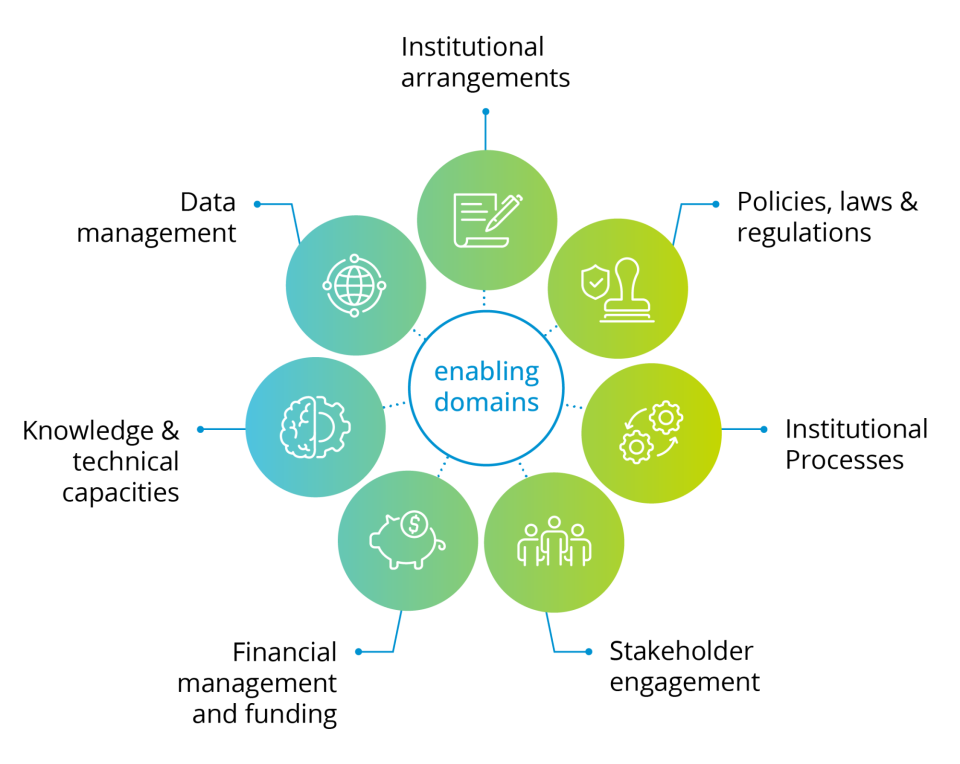Enabling Domains
The enabling environment governs the planning, delivery, operation, and end-of-service life of infrastructure. EnABLE has identified 7 critical domains from the enabling environment that have the potential to accelerate sustainable planning, delivery and management of infrastructure. Below is a detailed description of each domain.

Institutional arrangements
Institutional arrangements refer to the formal and informal divisions of power and responsibilities between public and private institutions or organisations for the efficient coordination of infrastructure planning, delivery and management activities.
Policies, laws, and regulations
This part explores how policies, laws, and regulations support the implementation of infrastructure programmes. More specifically, it looks at (1) how policies, laws, and regulations are defined, (2) whether they are implemented, enforceable, and sufficient and (3) how they align with upstream and downstream policies.
Institutional Processes
Processes are the set of interrelated or interacting activities that transforms inputs (laws, policies and regulations) into outputs. It is important to translate policies into actionable and clear processes for infrastructure implementation, such as processes for developing, reviewing, updating or validating decisions related to infrastructure planning, delivery and management.
Stakeholder engagement
Stakeholders are individuals or organisations that can affect, be affected by, or perceive themselves to be affected by a decision or activity. A wide range of stakeholders should be included in the planning, delivery and management of infrastructure to ensure that the population’s needs are met, benefits are equitably shared, and no one is left behind.
Financial management and funding
Financial management refers to the capacity of governments to budget, allocate and adequately spend resources to support the whole infrastructure lifecycle. Funding refers to the capacity to secure funds through external funding or revenue collection for infrastructure projects. Both are important to ensure successful operation of the assets, return on investment and, therefore, the long term delivery of service.
Knowledge and technical capacities
Human knowledge and technical capabilities are necessary to plan, deliver and manage, operate and maintain infrastructure. Governments and the private sector should use and develop the appropriate knowledge, technical expertise, resources and technologies to ensure infrastructure is developed and operated effectively. This includes the strength of the education system to support relevant knowledge and technical capacity, from primary school all the way through to professional qualifications and trades.
Data management
Data collection (frequency, desegregation level), analysis, dissemination, and integration of data into evidence-based planning, are essential to identify needs, prioritise investments, evaluate progress, and support good decision making.

